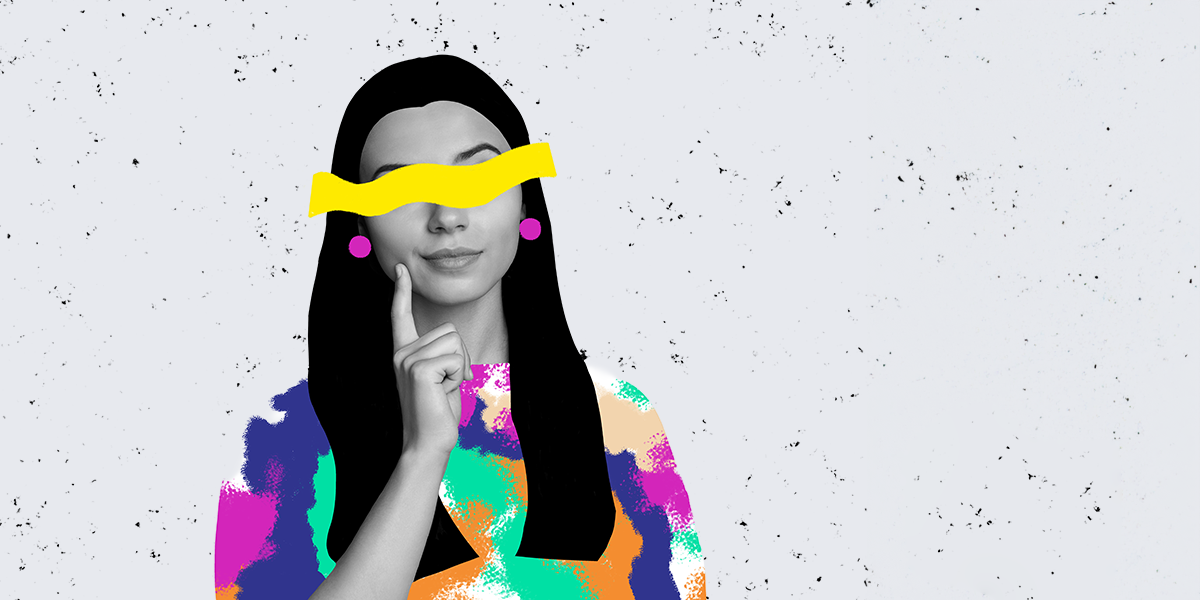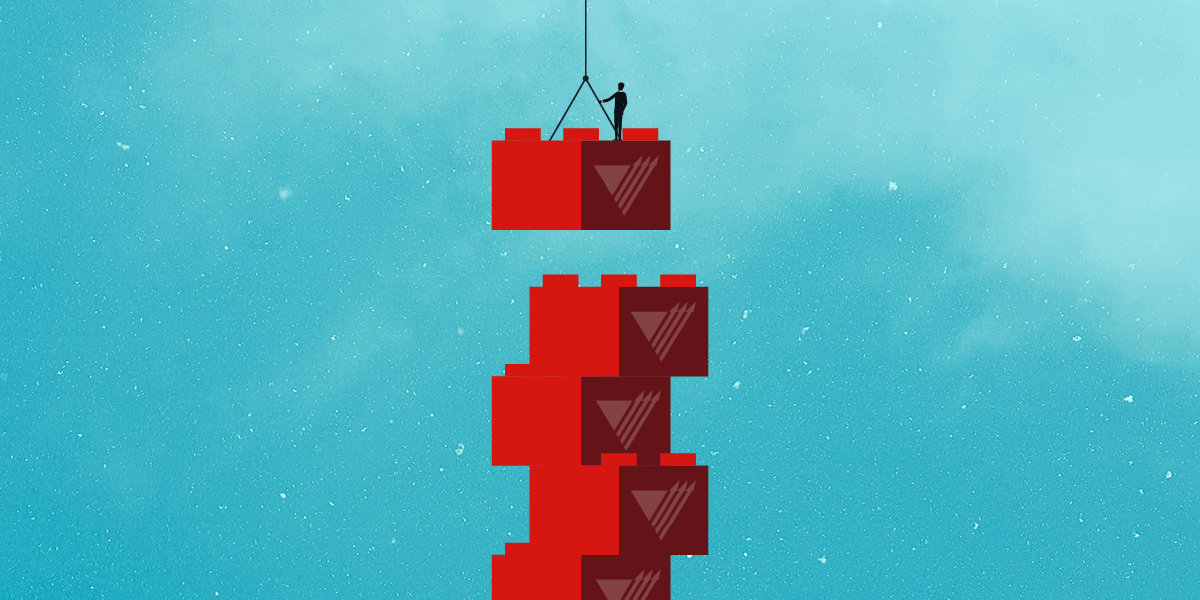
Everyone in the living room laughed at what I said—but it wasn’t supposed to be funny.
I was at a house party in Cuzco, Peru. I was the only non-native-Spanish speaker in the room, and I was struggling to keep up with the rapid-fire conversation.
At some point, someone in the room turned and asked me a question that I thought I understood.
But when I responded, “Si, exacto,” everyone burst out laughing—and wanted to run from the room.
Becoming fluent in Spanish was a personal goal of mine, but it wasn’t easy. I had more than one embarrassing moment like that, where my inability to find the right words left me cringing.
But I stuck with it, and now, I spend about six months out of the year in Mexico and Costa Rica, speaking casually with locals and enjoying the thrills of being (mostly) bilingual.
I’m so glad I stuck with it, through those awkward moments. My willingness to learn is what got me through to the other side. It’s the number-one trait that anyone needs to be the most courageous, confident version of themselves.
But so many people struggle to find the willingness to learn new things. In fact, it’s natural to freeze up or run in the other direction when faced with a challenging lesson.
There are things you can do to increase your willingness to learn. It all starts with understanding why it can be so challenging and frightening in the first place.
Why we resist learning new things
Learning something new should feel exciting—a chance to grow, explore, and expand what we’re capable of. But for most of us, the prospect of being a beginner again triggers a whole bunch of uncomfortable feelings that make us want to stick with what we already know.
Understanding why we resist learning can help us recognize these patterns in ourselves and push through them when they show up.
Fear of looking incompetent
Nobody wants to be the person stumbling through a presentation or asking what everyone else considers a “basic” question. We’re wired to care about how others perceive us, and being bad at something—even temporarily—can cause intense feelings of shame (or cringe).
This fear intensifies in professional settings. You might avoid learning new software because you don’t want colleagues to see you struggle, or skip industry conferences because you’re worried about not understanding the jargon. The irony is that avoiding these learning opportunities actually keeps you stuck in the shame-cringe-spiral longer.
The comfort zone feels safer
Doing things you already know how to do feels good. There’s no uncertainty, no struggle, no risk of failure. Your brain loves this predictability because it requires less energy and creates less stress.
But comfort zones shrink over time if you don’t push their boundaries. What feels safe today becomes limiting tomorrow, especially in a world that’s constantly changing. The job skills that got you hired five years ago might not be enough to keep you relevant in your field.
Past learning trauma
Maybe you had a teacher who made you feel stupid for asking questions, or you failed spectacularly at something important in front of people you cared about. These experiences create “mental scar tissue” that makes your brain treat all learning situations as potential threats.
One bad experience in high school math can convince you that you’re “not a numbers person” for decades (speaking from experience). A botched presentation in college can make you avoid public speaking opportunities throughout your career. These old wounds have more power over our current choices than we realize.
Perfectionism paralyzes progress
Some people resist learning because they can’t tolerate being bad at anything, even temporarily. They’d rather not try than risk looking foolish or producing subpar work.
This perfectionist mindset treats beginner-level performance as failure rather than a natural part of the process. But mastery requires you to be terrible first, then slightly less terrible, then mediocre, and eventually skilled. There’s no shortcut through the awkward phase.
Related: How to Focus on Progress Not Perfection
The AI trap: When technology makes learning feel optional
I use AI every day. ChatGPT helps me brainstorm article ideas, work through complex client problems, and even figure out what to cook when my fridge looks sad and empty.
But I’ve noticed something troubling about my own behavior—and I bet you’ve experienced it too. It starts innocently enough. You ask ChatGPT to help you understand a complex concept for work, or to generate some ideas when you’re stuck on a project. Then you start asking it to do things you already know how to do. How long should I cook rice? What’s a good response to this tricky email?
I caught myself doing this recently when I asked ChatGPT how to remove a wine stain from my shirt—something I’ve dealt with plenty of times before. It was easier than thinking through the steps myself, but it also made my brain a little lazier.
The problem isn’t using AI as a tool—it’s letting AI replace your own critical thinking. When you consistently choose the path of least mental resistance, you stop building the problem-solving muscles that create real confidence. You become dependent on external validation and assistance for things you could figure out yourself.
As AI becomes more prevalent, the ability to think critically, ask good questions, and work through problems independently becomes more valuable, not less. The people who thrive in an AI-powered world won’t be those who can prompt-engineer their way out of every situation. They’ll be the ones who maintain their willingness to learn and struggle through challenges—using AI as a powerful assistant rather than a replacement for their own capabilities.
How a willingness to learn builds unshakeable confidence
Repeat after me: “I don’t know, but I’m going to find out.”
This is a valuable phrase that you should get comfortable saying if you want to become confident.
People are not born with confidence. It is a skill you build, over time, by continually doing things that are a little scary. You start taking risks and doing things outside of your comfort zone, until whatever it is you’re doing is inside your comfort zone.
Then you do it again, and again, in as many areas of life as you want, and before you know it, you’re a confident, well-rounded person.
To build this skill, you first must be willing to admit that you don’t know everything. In fact, you don’t know most things.
Many people completely suppress their willingness to learn, because it requires them to admit they don’t know something.
Check that ego at the door if you want to become confident, because confident people say “I don’t know” a lot.
But they don’t let their lack of knowledge stop them.
They say, “I don’t know,” and then they are driven to figure it out.
Like me in that living room in Peru. I was humiliated, embarrassed about my inability to speak Spanish. But after I got over that emotion, I became intensely driven to figure out what I’d said wrong, so it wouldn’t happen again. (At least, not with that specific phrase.)
The unknown is scary, but the antidote is knowledge. If you’re willing to open your mind and push through the fear and shame, there will be no stopping you.
Developing your willingness to learn
Learning doesn’t stop when you graduate. In fact, some of the most valuable education happens outside traditional classrooms—through mentors, online courses, hands-on experience, and plain old trial and error.
Here are a few practical ways to strengthen your learning muscles:
Start with micro-challenges
Pick something small that you’ve been putting off learning and commit to figuring it out this week. Maybe it’s how to change a tire, cook a decent omelet, or use a new feature in software you use daily. (Check out our Adulting 101 article for more ideas).
The goal isn’t mastery—it’s proving to yourself that you can learn anything if you break it down into manageable pieces.
These small wins build positive habits around learning and create momentum for bigger challenges.
Embrace the beginner’s mindset in familiar territory
Take something you think you already know and approach it like a complete novice. If you’ve been using Excel for years, watch a tutorial on advanced functions. If you consider yourself a good cook, try a completely unfamiliar cuisine.
This exercise reveals how much there is to discover even in areas where you feel competent, and it keeps your learning muscles active without forcing you to dive into completely uncharted territory.
Find teachers everywhere
Learning accelerates when you have guidance, but teachers come in many forms. YouTube channels, online courses, podcasts, and books can all provide structured learning. Don’t overlook the people around you—colleagues who excel in areas you want to develop, friends with interesting hobbies, or mentors who can guide your growth.
The most successful people are constantly learning from others, whether that’s through formal education, alternatives to college, or simply paying attention to what works for people they admire.
Document your learning journey
Keep a simple record of what you’re learning and how you’re progressing. This could be a journal, a voice memo app, or even photos of your work. When you hit inevitable frustrating moments, looking back at your progress reminds you that struggle is temporary but growth is permanent.
This documentation also helps you become a better teacher to others, which deepens your own understanding.
For an example of what this looks like, check out my personal blog, where I’m documenting the process of running my own self-directed MFA.
Apply learning immediately
Don’t just consume information—use it. Your willingness to learn is one thing; you must also work on your willingness to “do.”
If you’re learning about personal finance, start tracking your expenses (here’s our budgeting template).
If you’re studying high income skills, find a small project where you can practice.
If you’re exploring community service ideas, volunteer somewhere this month.
The gap between learning and doing is where confidence dies. Bridge that gap quickly and often.
Life is full of tough lessons, and it takes courage and curiosity to make it through. But if you want to be a successful, confident person, then you must cultivate a persistent willingness to learn. With these tactics and consistent practice, you’ll soon find your confidence soaring as you learn new skills.






